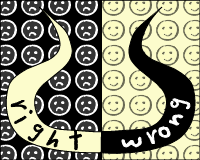In Defence of the F Word
Created | Updated Apr 11, 2010

Swearing has been much in the UK news this last week. The controller of ITV, Michael Grade, has made it clear to his production companies that he wishes swearing across the channel to be reduced. More recently MP Dennis McShane announced in the House of Commons that he wished broadcasters in general and the BBC in particular to limit the amount of swearing in their programs. The former is a company boss laying down the rules as he is, of course, entitled to do. The latter sounds rather like a relatively minor MP who is unhappy with the amount of press coverage he is getting. But is either of them actually right?
Well what harm does swearing actually do? Let's consider a word so divisive that I won't be able to get it past the profanity filter. It begins in N and it ends in R and it may be the reason Barack Obama lost votes in some of the southern states of the USA. Rather pathetically, serious news programs in this country are reduced to calling it 'the N word' under the apparent impression that they are presenting the news to five-year-olds.
There is no denying, the word exists largely in popular culture as a word used to describe black people by those among us who don't think very highly of them. It is a word tainted with the unpleasantness of racism, but shorn of that spin it can be totally different, as demonstrated by the fact that it is a word increasingly common among black people, who use it to address each other. Several years ago, while I was working as a teaching assistant in a secondary school I had, on one occasion, to explain to a student why the word that shall not be spoken was offensive. She was Indian, 12 or 13, fairly street smart (more so than me, certainly) but did not have the experience that led to her being offended by the word. How can a word possibly be offensive if you have to explain what it means first? It is the idea, the racism, which we need to see the back of. A word on its own means nothing, and telling people not to say any one word isn't going to prevent them from having the same ideas.
Ideas, interestingly enough, are things that should be cropping up fairly frequently in the House of Commons, where our friend Dennis McShane hangs around. The cradle of our parliamentary democracy should be awash with ideas, debated and honed until they emerged from the withering crossfire of argument as indisputably the right way to go. In fact, I would venture to suggest that any MP who feels the nation is being dragged into the gutter by the amount of times people say bugger on TV is probably watching BBC2 when they should be watching the Parliament channel. The point I am making is, that it is there that they would really see ideas disappearing down an enormous toilet. If you ever get tied to a chair and forced to watch Prime Minister's question time you would discover in short order that it is nothing more substantial than a rather pathetic game of point scoring. I'm not saying the ideas disappear altogether but they can often seem to fall second to mocking your opponents and the apparently obligatory business of disagreeing indiscriminately with what the other party has said.
What has all of this got to do with swearing? Well, let's imagine an MP who got up and claimed that, for example, the war in Iraq was 'a f—ing disgrace'. He would doubtlessly be censured for the rather nonsensical charge of unparliamentary language. But Parliament is never censured (not officially at least) for the ridiculously partisan nature of its debates, nor the embarrassingly poor attendance of some of the nations' elected representatives when it comes to the tedious business of turning up to vote for stuff. Saying 'f—' in Parliament actually does no practical damage at all, but if MPs can't be arsed (can I say arsed1?) to bother turning up to do their job then it does put something of a dampener on the whole process, and it's hardly surprising when electoral turnouts are rather low in response. So we are happy with people saying inappropriate things in appropriate language, but God forbid they should use inappropriate language to say anything at all.
That's really the root of my point. It's what you say and what you think that matters, not how you say it. I can sit here and type 'A black man should never be president. They're stupid, they're lazy and they're immoral' and nobody would call it bad language, even though it is patently utterly bigoted and repellent. If, however, I typed 'I for one am delighted they elected a n—, it's about time, too', I'd have a hell of a job getting it broadcast anywhere.
Aren't we getting our priorities wrong?
Articles by benjaminpmoore Archive
